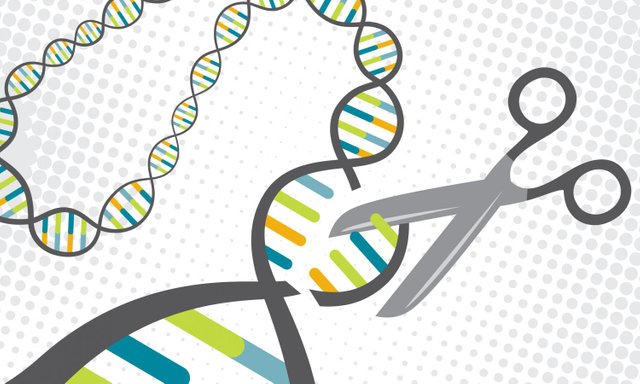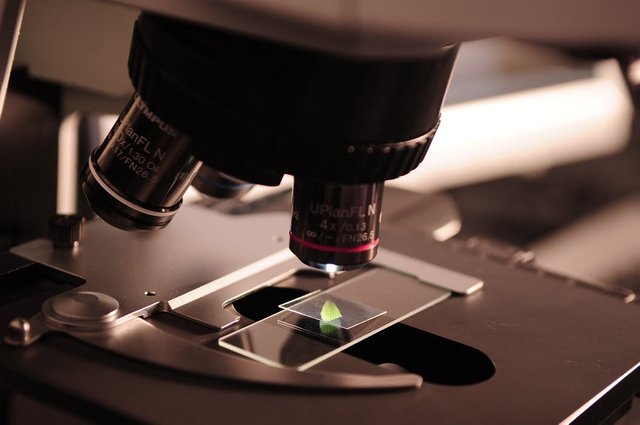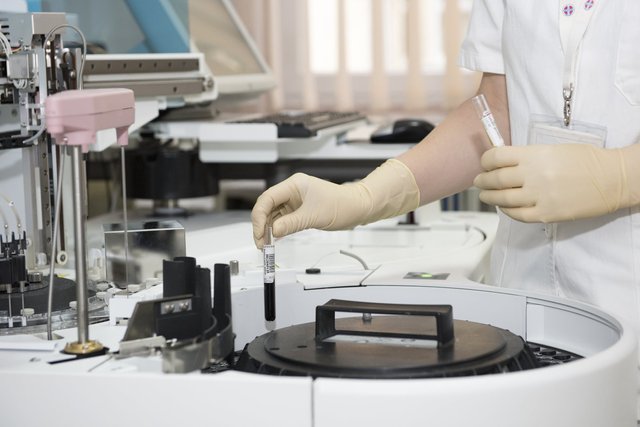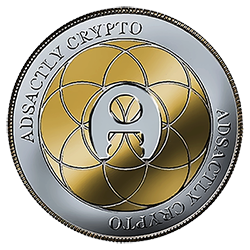ADSactly Tech News - The Ethics of Gene Editing
ADSactly Tech News: The Ethics of Gene Editing


As the possibility of gene editing in human beings becomes increasingly probable a lot of ethical challenges and questions are still left unanswered. Is it morally or ethically right to tamper with the human genome in an effort to make more 'perfect' people with greater mental and physical attributes?
We can't wait for the scientific community and governments to approach these topics, now is the time to push these conversations a lot more aggresively before it's too late.
I recently read an article in Forbes that was called 'Advances In Genetics Are Setting Off A Fresh Wave Of Ethical Concerns' that was really quite interesting.
There were some questions presented that I think we really need to ask before continuing down this road.
Questions like, what ethical challenges will present themselves when it comes to genetic modifications?
Is humanity really on a mission to create 'super-humans' is essentially delegating normal people to a sub-class of humanoid more than a bit worrying.



So lets have a look first at how far we have come in terms of regulation around this practice. Just a few weeks ago, an FDA panel approved a gene editing technique to cure a rare form of congenital blindness called Leber congenital aumaurosis (LCA).
This in itself is promising and a worthy application of gene editing. The cure for congenital forms of blindness is one of the gene editing techniques is apparently an area that geneticists have made a lot of progress in.
For example, they have been able to gene edit out red/green color blindness in squirrel monkeys since at least 2009. It's interesting to know that the cure for LCA was discovered around the same time.
The FDA appears to be allowing genetic editing in a limited way in an effort to cautiously help cure genetic diseases. Because we can fix many of humanities genetic problems with this new technology it seems that eliminating genetic editing would be a bad move as well because it provides so much potential benefit in ending human suffering.

But hold on for a minute, we must ask the question here, just because we can cure some things, does it mean that we should?
Can you see the moral dilemma here? Is it right for us to be playing god? How would nature deal with these diseases? Why do these diseases exist in the first place?
Some may argue that this is a biological safety mechanism to control populations on a planet, this wouldn't be my stance but I know there are people out there that may feel this way.
Here's another perspective. In a book written by Andrew Solomon called Far From the Tree, the author brings up the deaf communities of the world in a way we might not imagine them. He talks about them as not just people living with sensory deprivation, but rather they represent a rich thriving culture, with members who would readily argue that their senses, thanks to deafness, are enhanced.
So, we have reached a true moral dilemma, if the deaf really need to be “cured," whose decides to do it? Hearing parents who want a child like themselves? The child?
And at what age is someone old enough to make this life changing decision? Should it be at Age 5? Should it be at Age 18?
Perhaps when they grow up and possibly fall in love with someone in the hearing world or have hearing children?
Then wouldn't the opposite also be available? What if people had the ability to choose deafness by the same token? Perhaps some deaf parents may decide it would be best to take away the sense of hearing from a hearing child so they would have the opportunity to “fit in” better with their family?



This poses another interesting factor in the debate. Should we really a person affected by deafness as diseased? Couldn't this be at bare minimum, nature's way of creating diversity and the potential for limitless experiences.
I'm not arguing that people born deaf shouldn't have the option of gaining their sense of hearing. If modern medical therapies can provide that for them by all means, I do believe it should be offered.
This past summer, CBS reported that genetic testing had become so commonplace in Iceland, that pregnancies with embryos believed to have three copies of chromosome 21 instead of two, were routinely terminated.
It needs to be emphasized that the population of Iceland is under 350,000, and the average Down’s birth was two per year, however, recently, so few babies have been born with Down Syndrome, that if this trend continues, eventually no one with Down’s will be born in Iceland.
While many people would argue that people with Down’s are less healthy and experience more challenges, others would say, many live long healthy lives and are better for those challenges.
This technology clearly presents an evolutionary advantage for the 'haves' but what about the 'have-nots?'
This question has me a bit boggled and confused I'm afraid.



I think its amazing that they've found a way to prevent births of children that would be born with Down Syndrome.
In regard to Down Syndrome, I feel deeply sorry for anyone who has it and the family members that have to cope with this being part of their loved one's life. But, on the other hand is it fair that rich first world nations can afford this kind of care. Do you think humanity could provide this advantage to the billions of future parents living on this planet?
Obviously, it would just be nice to see that this wasn't just an advantage received in so called 'first-world' countries but it also applied to the developing and third world countries as well.
There are just a few more questions I think we should be asking in hopes that the scientific and medical communities of the world will come together and ask these questions as well. More importantly we need them to agree upon the answers and we must hope the answers posed are agreeable with humanity.
Who owns our DNA brings up its own host of complicated questions. If I ask you, who should own your DNA, what is your gut answer? You, right? We should each own our own DNA. But let me kill the suspense here, if you do 23andMe or any of those other boutique genome mapping experiences that tells you your ethnic background - YOU DO NOT OWN YOUR DNA.
So do we own our DNA or not? Should we be more careful and develop stronger moral and ethical guidelines before persuing more advanced gene editing methods in application to human beings? What do you guys think about this?
Please leave your thoughts and feedback below!
Thanks for reading.
Authored by: @techblogger
In-text citations source: Advances In Genetics Are Setting Off A Fresh Wave Of Ethical Concerns - Forbes
Image Sources: Pexels.com, Phys.org


Gene editing might be helpful in coping certain syndromes but it should not tamper the human genome which is bestowed by God.
Absolutely great post
Great post!
Gene editing comes with countless ethical questions that are almost impossible to answer.
I think the discussion will never end, as there is no clear line between right or wrong.
But these are questions that we will definitely have to deal with in the future - let's see how humanity will handle it!
Lets keep trying to do what we can to get discussion going around this topic and hopefully induce lasting and meaningful change in the way the global scientific community approaches this work in an ethical and morally responsible way. The fact that medical facilities around the world are increasingly able to screen for Down Syndrome in unborn children is amazing, in fact I have a friend who paid for this testing recently and said it was worth every penny. There is certainly good coming from this field as well.
Yes, I agree. And wow, the example of the screening for Down Syndrome is something I didn't know about.. how long has this been around in the medical field??
It is ethical because it will help ensure the survival of life.
No, stopping the destruction of life will ensure its survival. Not tampering with DNA.
Hi, I am a med student and my wife is a biology researcher so I will try to give my thoughts not only from the ethical base but also from a practical scientific point of view.
Regarding ethical points:
Now - practically - my and my wife's professors do not care much about ethical observations - the academic world is like a race - every person in this world tries to get to the next finding faster than the plethora of other scientists working on the same thing, and they will do almost whatever they can to achieve that. Therefore those questions you rise are extremely important, but it should be pressed that the government, with the assistance of ethics professionals and philosophers, should contemplate this issues - draw guidelines and then force them on the scientific world.
I'd encourage you to read book 3 of CS Lewis' Space Trilogy "That Hideous Strength" as a counter to Dan Brown's book.
I would also like to think that we(the human race) have the ability to counter the Malthusian over-population question.
(emphasis mine on your quote)
I'd rather see the scientists self-police their actions and research than have guidelines forced on them by government. Who knows, in a decentralized scientific research community, one that wouldn't "depend" on government for funding, maybe that would be possible, but I don't believe that adding more regulations and laws is the ultimate answer.
You bring up important points. Unfortunately, I see technology advancing faster than the ability to keep up with it ethically.
SDG
Thanks for the tip! I will try to read them when I have some time :)
Really, if you get the time try to. The trilogy does not have to be read in order, but it is the last one that would be most pertinent to the questions raised. Good luck in you and your wife's studies.
I'm a semi-retired pharmacist and I would have loved to go into research, but I knew the ability to do hard research (research for knowledge sake) would be tough to do without doing a lot of butt-kissing.
SDG
So you know how hard it is as a med student to find time for book reading :) but I will download it to my kindle if it's available for kindle and will keep it in my to do list!
Overpopulation is a fiction created by oligarchic eugenicists. Many scholars and researchers have noted this fact for years. Deciding who lives or dies is an ethical quandary indeed but I disagree with your claim that every person should decide to act on their personal beliefs. Killing innocent life is wrong and should be understood as such if we are to survive as a species. Your description of the scientific community ignoring ethics in the name of progress, especially in matters such as this, alarms me but is not surprising. Those same aforementioned oligarchs fund such shadowy research for eugenics and to create genetically altered beings for their own sick purposes. It's already happening. So disturbing.
Thought-provoking article! We need more critical thinkers in this world
Absolutely. If I'm not mistaken building stronger communities and publishing content that inspires both creativity and critical thinking skills is one of the main goals of @adsactly. Thanks for your feedback.
Communities can do just as much or more than tech can to improve our world. Or let's do both!
I can tell you that both CRISP and chimera projects along with human embryo projects are moving forward, fast. We have human-pig chimeras, modified human embryos ready to grow and we have the info needed to work with Cas9 & CRISPR.
We design the Cas9 to only cut the exact sequence of interest and calculate the risk of of site cutting, which is easy since the genome is known.
Cas9 degrades fast in human cells leaving little time to cut DNA, improving specificity.
The MYBPC3 gene has been corrcted with Cas9 and no off site changes where found. Yes in human embryos!
https://www.nature.com/news/crispr-fixes-disease-gene-in-viable-human-embryos-1.22382
This would prevent a severe inherited heart condition without other effects, it seems.
Knowing this, it would be morally incorrect to invoke religion or simply fear to stop the prevention of needless suffering and death. This is what science is all about, specially medicine / biochemistry, since all we do is strive to reduce suffering and pain. I feel that this is our moral obligation to do as it is becoming precise enough.
Saying that it would be the dream of Joseph Mengele is retarded, and yes i´ve heard this argument numerous times, since he was insane haha and moral was not the main concern of his studies, which it is today.
Science today would not target genes linked to unnecessary traits or weaknesses simply life threatening gene mutations causing major suffering or death ,specific enough to correct or knock out!
Peace!
Very interesting! I tried my best to create a balanced article about this subject because it is undeniable that this field of research has the potential to save lives as well as improve the quality of life in a countless number of people. You didn't touch on the possibility of creating genetically superior human beings which would in a sense inherit the earth... Any thoughts on that?
Well the first problem we stumble upon is simply that our DNA´s is getting known and when this becomes standard information in our health journals, the more genetically "prime"humans will be regarded better. They will have easier getting insurances, loans and work yeah anthing that runs over long durations. Who would hire someone that will be dement by 50 ? or give life insurance to someone born with high probability of early heart failure or early life cancer ? So by fixing these worst defects, we would only save a few lives from suffering noting more.
Today and in the near future this is the main problem i would say since we can only fix defect genes or knock them out we can´t engineer new genes leading to expression of new proteins which would bring a new phenotype. This has many problems and is far away in time but would lead to a direct elite human project!
Adding non human genes would be a direct way to instead of super humans, create a new race, even a single gene addition to germ line DNA will accomplish this.
This wont be morally obligated untill it comes to the survival of our spices and should be kept away from military complexes etc.
Regulating what we got and fixing the worst errors is within morale obligations, while keeping health journals away from insurance companies and employers.
Regulations of defect genes should not in anyway be confused with creating new ones and inserting or inserting non human genes and does not lead to elite humans just less sick individuals :)
If everyone had severe genetic disorders then it would truly lead to an elite race emerging, consisting of those who lived in the right area and could afford it. Hopefully or genome wont commit suicide anyway soon and I hope that evolution keeps us on path instead of science saving a few individuals from becoming sludge while the rest witter away. But if our genome anyway decides to give out, its still better saving a few elite humans then saving none :)
This discussion reminds me so much of different SciFi stories.
I immediately thought of Nancy Kress' novel "Beggars in Spain" written in 1993 plot synopsis below courtesy of wikipedia;
I excerpted the following for further consideration;
Looking forward to future discussions.
Thanks @techblogger & @adsactly
SDG
I believe that thanks to such technologies, changes in the DNA at the initial stages of development, other interventions are more likely to be more useful than moral problems. First of all, it is possible to avoid quite a lot of diseases (for example, Down's syndrome) by such interference, it is also possible to get rid of many other diseases and find out at what period of their life they will appear and progress. You know the proverb: "who is warned - he is armed." We must look to the future more confidently and, therefore, should develop in all spheres, and most importantly it is that such technology should be accessible to disadvantaged people, from the fact that the benefits from this will be much greater than if it is a privilege of the rich.
This is a serious topic for discussion, so the final decision should be made by serious people, the entire world community of scientists ...
Thank you for raising such topics, it's very interesting
Absolutely. Its a discussion that humanity needs to start having everyday until we build proper rules and guidelines that all parties are willing to follow.
Agreed :) who know - maybe this post and replies will help a tiny bit 😁
Well its already helped me! I see so many cool knowledable people who have both an awareness and opinion on the matter discussed. Thanks for your educated thoughts on this Kivsha!
We chose to test our embryos as my wife is a symptomatic carrier of hemophiliaA but in no way did we manipulate the embryo. Why just found which one wouldn't have the cards stacked against him/her if avoidable.
As a result we ended up with boy/girl twins who are dynamite!
Interesting write. I like share my thoughts on the advancement of AI technology and the concept of singularity where man and machine will one day merge, in the works and thoughts of Ray Kurzweil and Elon Mask. In specific the advance machine learning capbility.
Is gene editing (CRISP), and AI (advance Intelligent) singularity merging as well and will such collusion going to pose any threat to humans or greatly advance mankind in terms of health security and moral values.
It definitely is a threat to humans and I suspect it will offer neither of the later postulations you made. How would an artificial life form going to enhance health and especially "moral values"???
on the contrary, as i understand from the works of Elon Mask, the process of machine learning is on going as I speak. In future AI will be able to replicate or duplicate human emotions and feelings. This will allow AI to merge into human society and enhance social interaction and medical technology.
The first AI robot, Sophia had been granted by Saudi Arabia a citizenship is a living example, though still in its early stage.
Great man.... actual thining about the ethics of Gene editing........and yeah I am so much pleased about your post......superb job dude....keep it up.💜
it is very cool done))